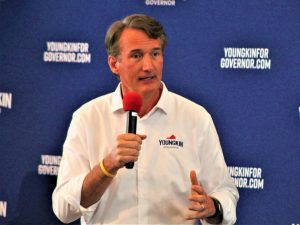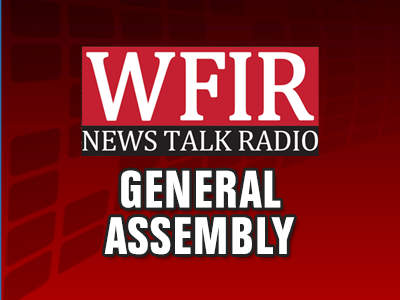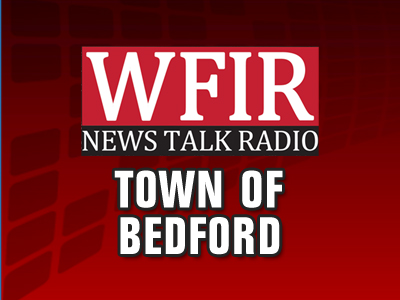
FALLS CHURCH, Va. (AP) —Glenn Youngkin, a political newcomer who campaigned as a conservative, Christian outsider, edged closer to becoming Virginia’s Republican gubernatorial nominee as ballot-counting continued Monday night with Youngkin still short of a majority needed to clinch the nomination.
More than 30,000 delegates cast ballots Saturday at what the Republican Party of Virginia is calling an “unassembled convention” to choose their nominees for governor, lieutenant governor and attorney general.
With no candidate garnering a majority after the first round, the winner will be determined in part by whom delegates listed as their second and third choices among the seven candidates vying for the spot.
Under the ranked-choice voting system implemented by the party, the votes of the last-place candidate, former Roanoke Sheriff Octavia Johnson, were redistributed to the six remaining candidates based on whom those delegates designated as their second choice.
The process is repeated in subsequent rounds until a candidate gains a majority.
After five rounds of counting Monday, Youngkin had 42% of the weighted vote, followed by businessman Pete Snyder at 33% and state Sen. Amanda Chase at 25%, according to returns provided by the party.
Youngkin, a former CEO of The Carlyle Group investment firm, is making his first run for public office. He lent his campaign more than $5 million and spent more than any other candidate through March 31, according to data from the Virginia Public Access Project. He campaigned as a “conservative Christian outsider” and highlighted his business experience.
The party began counting ballots in the attorney general race on Sunday. Delegate Jason Miyares won a close race after three rounds of balloting over hard-right candidate Chuck Smith.
Smith’s surprisingly strong showing was interpreted by some as a good sign for Chase, a hard-right gubernatorial candidate who has been censured in the General Assembly in a bipartisan vote and is most closely associated with former President Donald Trump.
Chase, though, sat in third place after the fifth round of balloting. She has suggested she might run as an independent if she feels like the nomination process was unfair, particularly if Snyder wins the nomination.
Democrats will choose their nominee next month in a state-run primary. Former governor Terry McAuliffe is the front-runner in a field of five candidates.
Virginia bars incumbent governors from seeking reelection, so Democratic Gov. Ralph Northam is barred from seeking a second term this year.
Virginia is the only state with an open-seat gubernatorial contest this year; the race is being closely scrutinized as an early signal of each party’s political strength heading into the 2022 congressional elections.
Republicans have not won a statewide race in Virginia since 2009. But Republicans have some hope of ending their drought this year; since 1973, only once has the party controlling the White House gone on to win the governor’s race in Virginia the next year.
The convention was open to Virginia voters who pre-registered as delegates. People who had voted in past Democratic primaries were allowed to participate if they renounced their earlier Democratic votes and promised to support the Republican nominees in November.



